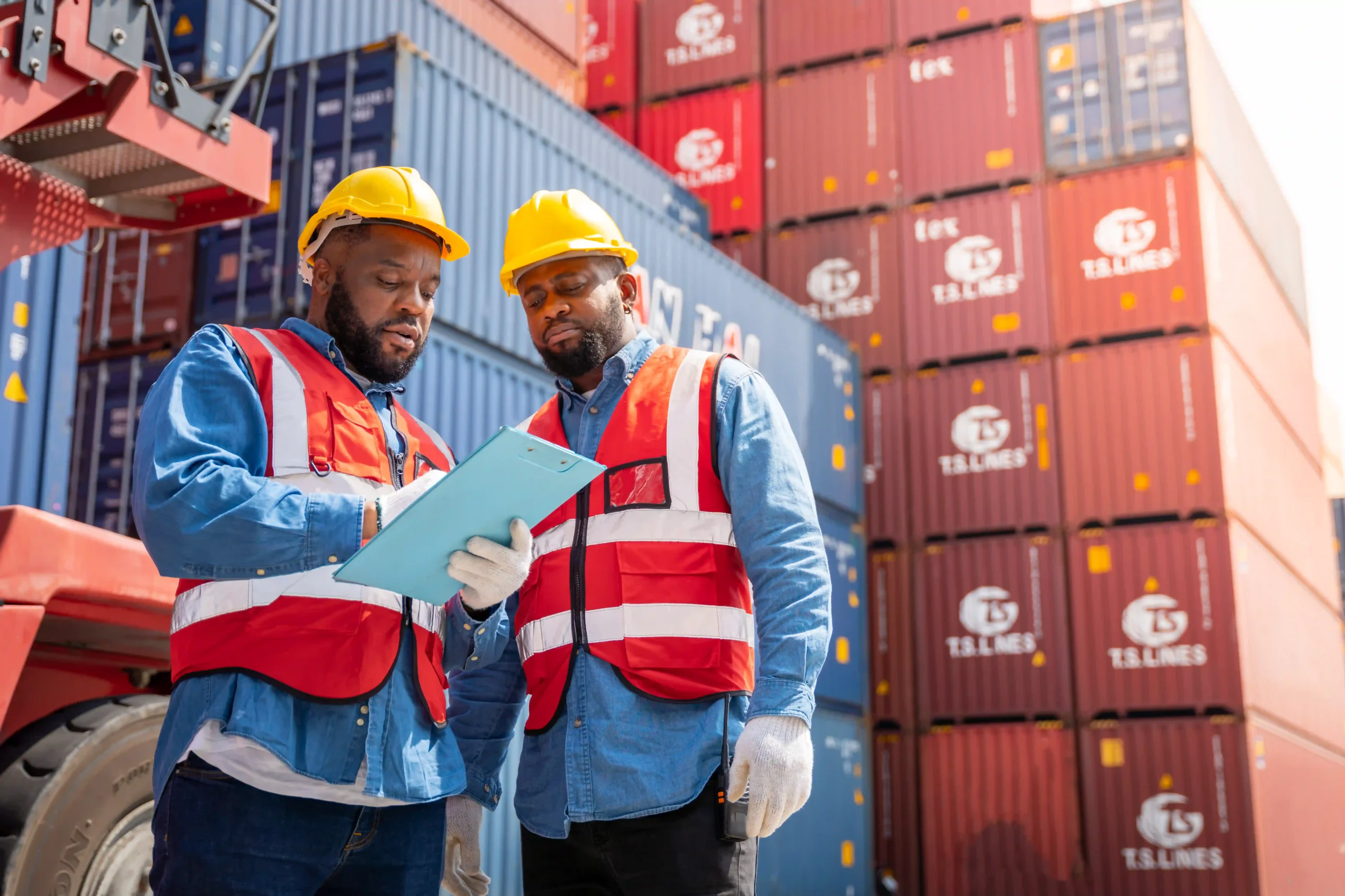Shipping logistics careers involve managing the movement of goods across local, national, and international routes. It’s not just about moving boxes—it’s about making sure the right product gets to the right place, at the right time, in the most efficient and cost-effective way possible.
In my 35 years leading Tri-Link FTZ, I’ve seen logistics evolve from manual systems and paper trails to a high-tech world of real-time tracking, automation, and global coordination. These roles can range from working in a warehouse to overseeing international shipping networks, and there’s room for everyone, from the hands-on operators to the big-picture strategists.

Every time a customer clicks “Buy Now,” a ripple starts in the global supply chain—and logistics professionals are the ones who make that ripple flow seamlessly. During the COVID-19 pandemic, shipping logistics careers became lifelines, keeping essential goods like medicine and food flowing despite massive disruptions.
And now, with e-commerce booming and global trade bouncing back, logistics has become a strategic powerhouse in every industry. It’s not just trucking and warehousing anymore.
It’s AI, sustainability, and data-driven optimization. At Tri-Link FTZ, we’ve leaned into that evolution by modernizing our operations and doubling down on talent development.
One of the things I love most about this industry is that there’s no single path to enter it. Some people start as forklift drivers and end up as warehouse managers.
Others study supply chain management and land a role as a logistics analyst or freight forwarder. At Tri-Link FTZ, we’ve hired people with backgrounds in customer service, tech, and even the military.
What matters most is problem-solving ability, a strong work ethic, and attention to detail. Certifications like CLTD (Certified in Logistics, Transportation and Distribution) or OSHA training help, but so does showing you’re ready to jump in and contribute from day one.
You’ll find shipping logistics careers across a huge range of companies—from third-party logistics providers like Tri-Link FTZ to freight forwarders, retailers, and government agencies. We regularly partner with industries ranging from electronics to pharmaceuticals, and all of them rely on reliable, efficient supply chains.
Whether you’re shipping medical devices with strict handling protocols or managing container loads for a retail rollout, logistics pros are essential. And it’s not just massive global corporations hiring.
Local businesses and startups also need logistics support, making this career path accessible and relevant in nearly every corner of the market.

No matter where you land in shipping logistics, some skills are non-negotiable. Communication is huge—you’re constantly coordinating between clients, carriers, and customs.
Tech literacy helps, too. Many platforms we use at Tri-Link FTZ involve software for routing, inventory tracking, and regulatory compliance. Time management and problem-solving are also vital, especially when delays or disruptions happen (and trust me, they will).
We also look for people who stay calm under pressure and think like systems engineers—always planning two moves ahead and seeing the bigger picture of every shipment. Read more here.
Salaries in this field can vary quite a bit depending on your role, region, and level of experience. Entry-level logistics coordinators might start around $40,000 per year, while experienced managers and directors often earn $80,000 to $120,000 or more.
At Tri-Link FTZ, we’ve seen freight analysts grow their compensation quickly by taking on certifications and improving operational performance. The most competitive candidates not only know how to move freight—they know how to optimize it.
Bonuses, profit-sharing, and relocation packages are also common in more specialized logistics roles. If you’re looking for a career that can grow with you financially, this one’s a smart bet.
You don’t need a decade of logistics experience to get started. In fact, many of our top-performing team members at Tri-Link FTZ came in with no industry background.
What made them stand out was a willingness to learn and a knack for thinking a few steps ahead. You can gain a competitive edge by taking a free online course in supply chain fundamentals, improving your Excel skills, or even learning basic warehouse systems.
Internships, volunteering, or even shadowing someone in the field can also help. Don’t underestimate the power of showing up with a can-do attitude—that’s how most of us got our start.
The future of shipping logistics careers is bright—and it’s also changing fast. With automation, AI, and sustainable logistics gaining traction, today’s logistics pros need to stay agile and tech-savvy.
At Tri-Link FTZ, we’re investing in digital platforms and green freight solutions that reduce emissions and improve efficiency. We expect careers in this field to keep evolving toward more strategic, tech-integrated roles.
Whether you’re optimizing drone deliveries or designing sustainable transport networks, there’s no shortage of innovation. If you’re looking for a career where you can grow, adapt, and lead—this is the place to be. Read more here.
Share this article
We have other resources available upon request as well as one-on-one support and personalized answers, just like our services.
Simply contact us anytime and we’ll get back to you to answer your questions and provide meaningful answers that show you how Tri-Link supports your logistics, reduces costs, and accelerates efficiency.
Tri-Link delivers exceptional FTZ and 3PL services tailored to your global trade needs.
Our solutions combine innovation, quality, and efficiency to exceed your expectations and meet your specific requirements.